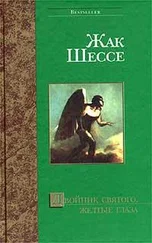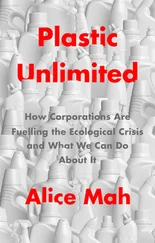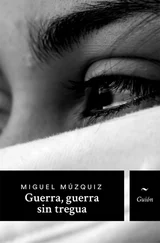Helicopters juddered by overhead almost daily. A fugitive was suspected of hiding on Mount Seymour, although he was later found in a tool shed near Indian Arm. A woman tossed her child from the Capilano suspension bridge, but it miraculously survived. Two Japanese exchange students wandered off three-quarters of the way up the Grouse Grind arm in arm and disappeared into the trees.
We no longer communicated with our children except through a kind of sign language. They spoke in coded grunts and shrugs. Stefan’s twins talked to each other in clicks and clacks of the tongue, like the bushmen of the Kalahari. They drew on the garage walls with the charred ends of sticks and charcoal briquettes as if drawing on the insides of caves-of the things they imagined, or the things that had yet to happen, it wasn’t clear then. A small figure emerging from bushes on what looked like an enormous turtle. Men with sharp implements converging on a cowering beast. Tangles of foliage and fire. Rain.
Sightings of our neighbour became rare, his comings and goings much less of a show, perhaps achieved under the cover of darkness, the revving of the Harley less and less frequent, until the bike was permanently dry-docked. Gido had such a disappointed air about him that Karlheinz suggested taking him for a ride on Marcus’s Vespa so he could at least feel the wind in his ears.
Stefan swore he had seen Lucy’s arms swinging along, his knuckles skimming the ground, pelvis tipped backwards as he made his way through the dense overgrowth to his backyard after depositing his garbage container by the curb. (His front door obscured by a tangle of vines.) He was certainly moving more deliberately now whenever we did see him, and wasn’t as quick with the rejoinders as he had been. It was only after he stopped the clowning completely that we realized how much we had enjoyed viewing him as a harmless throwback. Patel, who is intermittently nocturnal and lives adjacent to him, claimed he had seen Lucy on his haunches, eating raw meat straight from the carcass of some small creature. This only made Karlheinz scoff. “Neanderthals cooked meat on hot stones.” We were touchy with each other by then.
Each of us had our own theories. Cro-Magnon! Homo habilis! Homo erectus! Australopithecus robustus! Our hypotheses flew back and forth like insults. We clung to these with a certainty that was all the more convincing for being feigned. Six blind men describing an elephant, when in fact the whole of a thing is so often not so much greater or lesser but completely different from the sum of its parts.
But why even trouble with taxonomies? They are shifty, after all, and, as we’ve learned, in the end it’s all just words.
It was towards the third week of August that our wives started avoiding us altogether, disappearing into themselves as the sky fell. We tried following them, walking barefoot, careful on the tinder-dry pine needles underfoot, breathing through our mouths slowly and evenly. We knew this wasn’t the way it was supposed to be, fire ants pouring from the peonies, keeping watch while our wives grunted among the vines. But they were always home by morning.
Right before the Labour Day weekend, one of the Japanese exchange students came up out of the ravine straddling the back of a giant tortoise. She looked dazed but otherwise unaffected, the tortoise heavy lidded and benign. (Stefan remarked that it looked a little like Sinatra in his later years.) It was Trevor who called 911. Only after the emergency vehicles and media people that converged on the cul-de-sac had gone did we realize that no one had thought to take a photograph. The ones in the newspapers and on SnapTweet, and the footage on the news and on YouTube, didn’t come close to capturing the other-worldliness of what we had witnessed. The aquarium issued a statement that a tortoise recently acquired for its upcoming Galapagos exhibit had indeed gone missing from its transport container. But we still wonder.
The boys had jostled for proximity to the tortoise, prodding it with sticks despite our entreaties. One of them (Marcus’s son?) even poked at the girl. By that point a kind of despair permeated our cul-de-sac. Only our sons seemed oblivious to the smell and the frequent volcanic eruptions that pockmarked our driveways with small craters. We had prided ourselves on raising children with a high emotional IQ, but these little creatures had become alien to us, and we could only watch them from an increasing distance as if from the reverse end of a telescope.
Our wives squatted on their haunches in front of backyard fires they’d built in pits lined with basaltic rock, looking at us with those eyes, waiting for us to do something. Hunt? Gather? Or something else, something beyond our capabilities altogether?
We’re aware that by today’s standards the retiring Chas himself would have been considered a bit of a barbarian by some. He collected specimens by the thousands and thought nothing of casually slitting open the bellies of creatures to examine the contents of their stomachs. On the Galapagos he made a sport, under the guise of research, of swinging a lizard by the tail and hurling it out over the water as far as he could. He caught the terrified creature as it crept back onto the volcanic shore and catapulted it again and again. This type of lizard could evidently swim but was afraid of water. What the naturalist deemed this contradiction: apparent stupidity.
On Labour Day, Kim’s wife left. Patel, not generally a man to talk in clichés, later kept repeating, Thank God there were no children , and not one of us even considered scoffing. She had gone not to Lucy’s as we’d first suspected, but clear across the bridge to another life that was not to include Kim. This was all in her note. (It has to be said, now that Kim is no longer here, that we were taken aback by her schoolgirlish handwriting and her choice of stationery.) All of us were in agreement about whose fault this really was.
Late that night we were decidedly sombre as we gathered in Kim’s kitchen, lit only by the amber glow of LED pot lights. To get through the dense foliage, we would have to take the equivalent of machetes to the vines and the thick-ribbed hogweed stalks. Kim doled out fully forged and polycarbon-tipped chef’s knives with military precision. How different those Sabatiers and Wüsthofs were from the stone tools we found scattered around our ancestor’s backyard. We buried those as well. (Stefan has confessed to pocketing a Mousterian scraper as a souvenir, although we agree souvenir seems the wrong word. Patel suggests memento mori .)
Lucy, you got some ’splainin’ to do! How could he have explained? With that jaw grown so heavy it was now only good for mastication? With that tongue that most of us were certain had nimbly traced figure eights on our wives’ breasts and thighs, now thickened and barely contained in the bowl of his mouth? Trevor swears he pleaded. His eyes, buried under that shelf of brow, begged for understanding. Did he plead? Sometimes even the merest suggestion of what may have happened is enough to make you question your own recollections.
As for Gido, what could we do? That dog had an exceptional sense of smell. And halfwit or not, that dog was loyal. Even now we’re not ashamed to admit that more than one of us wept. Karlheinz the longest and hardest.

The mail continues to arrive at 2781, the bills get paid, even the mortgage, thanks to Trevor’s computer-hacking skills. Come tax time Stefan, a crackerjack accountant, will see to it that the former occupant doesn’t fall into arrears. We’ll make sure he sends his old mom, the only personal correspondent we could determine, a Christmas card.
Читать дальше













